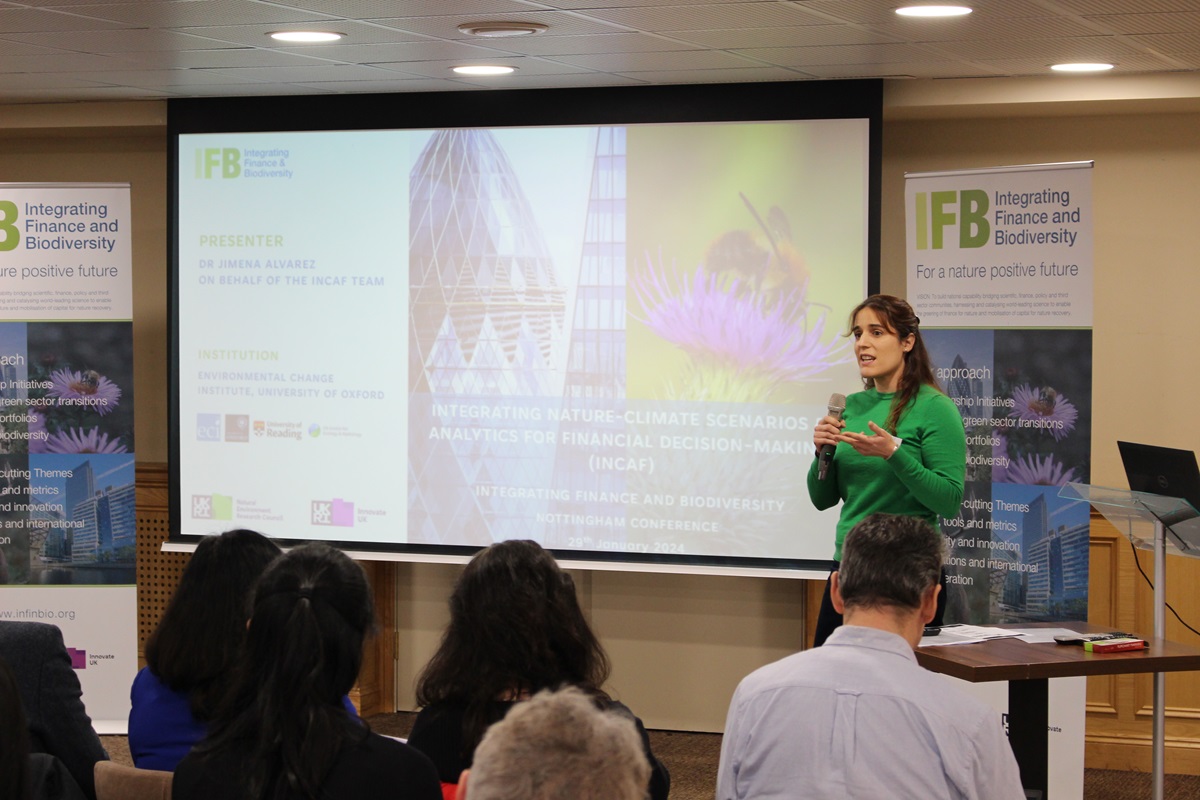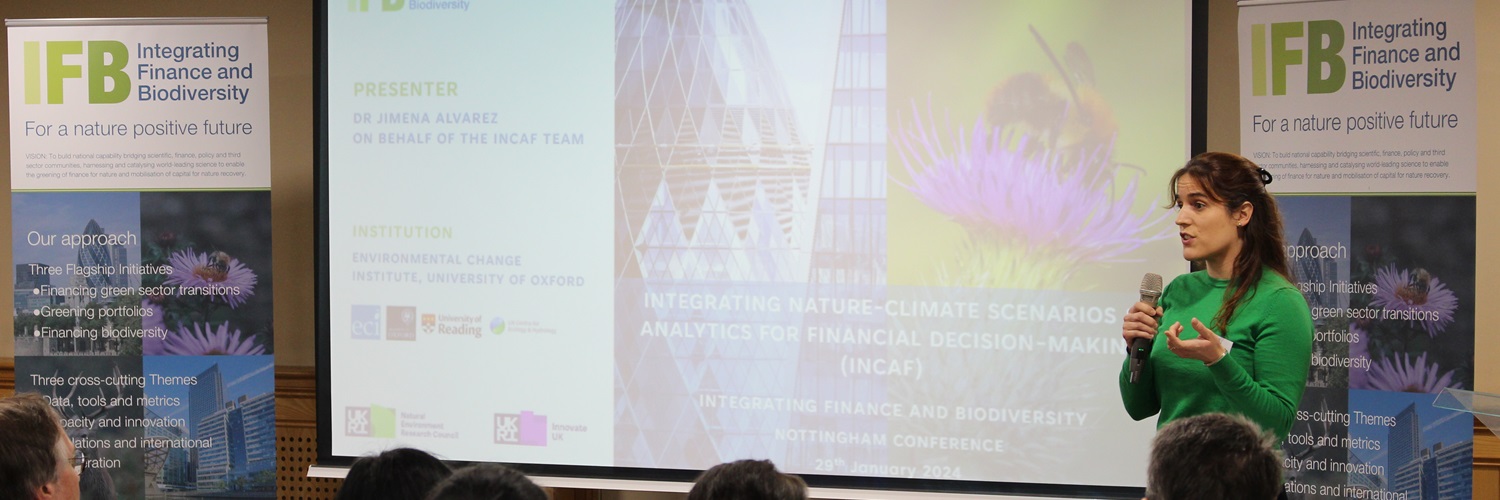The joint Integrating Finance and Biodiversity and Economics of Biodiversity Conference 2024 was held in Nottingham.
The first day included presentations from all 12 IFB Phase I pilot projects. In the second of a four-part series, we provide overviews of presentations four to six. Presentations 1 - 3, Presentations 7 - 9, and Presentations 10 - 12 are also available.

Dr Jimena Alvarez presenting Integrating Nature-Climate scenarios and analytics for financial decision making (INCAF)
Biodiversity Impact Credits to minimise species extinction risk – Dr Axel Rossberg, Queen Mary’s University of London
Axel described the development of the Biodiversity Impact Credit (BIC) and how by working with the Taskforce on Nature-related Financial Disclosures (TFND), it was possible to convince it to emphasize species extinction risk. The BIC, with its unique strengths, is the only biodiversity credit scheme endorsed by the TFND.
By working with an intermediary, Climate Impact Partners, over 25 BIC generating tree-conservation projects are now on sale in the UK.
Biodiversity credits for species extinction risk have many of the attributes sought by financial markets and the public. They have intuitive ethics, they are globally tradable, they are a simple unit/currency, and they are theoretically solid.
Further work to gain acceptance will include engaging in debate, perfecting BIC offerings from providers, preparing for the World Economic Forum biodiversity credit auction, and building a market ecosystem in the City of London.
Integrating Nature-Climate scenarios and analytics for financial decision making (INCAF) – Dr Jimena Alvarez, Environmental Change Institute, University of Oxford
Jimena spoke on the new methodology on integrated nature-climate risks for financial decision making. This was described in the Green Scorpion paper that was published as a Network for Greening the Financial System (NGFS) Occasional Paper. This includes a risk screening and assessment approach to identify nature-related key risks at the country level.
The INCAF-Oxford methodology is heavily featured in the NGFS Nature Taskforce Scenario recommendations.
In a project led by the Green Finance Institute, funded by DEFRA, and with UNEP-WCMC and NIESR, the INCAF team has developed the first UK nature-related risk inventory (under expert review) and the first UK integrated nature-climate scenarios for financial decision-making.
The team is currently engaging with UK private financial institutions to test its integrated nature-scenarios in their portfolios and gather feedback.
The BIOESG project – Prof. Ben Groom, LEEP Institute, University of Exeter Business School
Ben outlined the challenges of biodiversity measures within Environmental, Social, and Governance (ESG) metrics. They are often seen as having minor importance, they depend on weights of other factors (in the ‘E’ of ESG), and they can be a counter intuitive indicator.
In addition, the biodiversity metric in “E” does not affect company performance (asset returns, profit margins, earnings) or systematic risk. Furthermore, sell-side analysts and institutional investors often ignore biodiversity.
Ben concluded by saying that investors are key. They need to be persuaded to care about biodiversity risks and opportunities, and to identify how these are reflected in returns.
